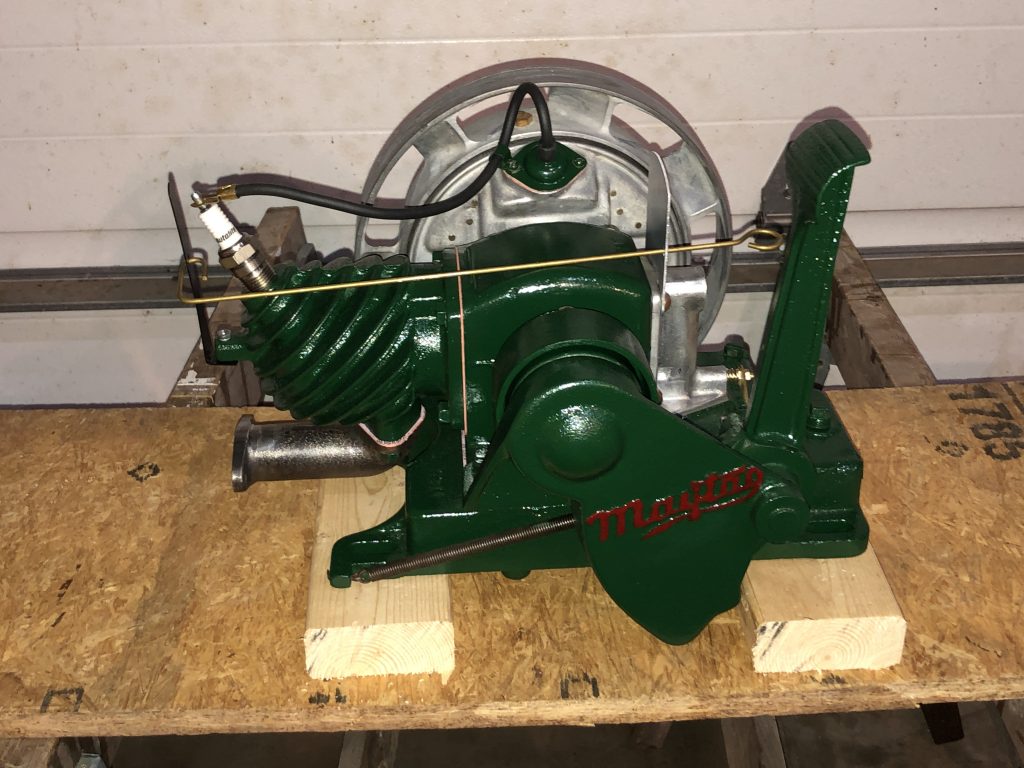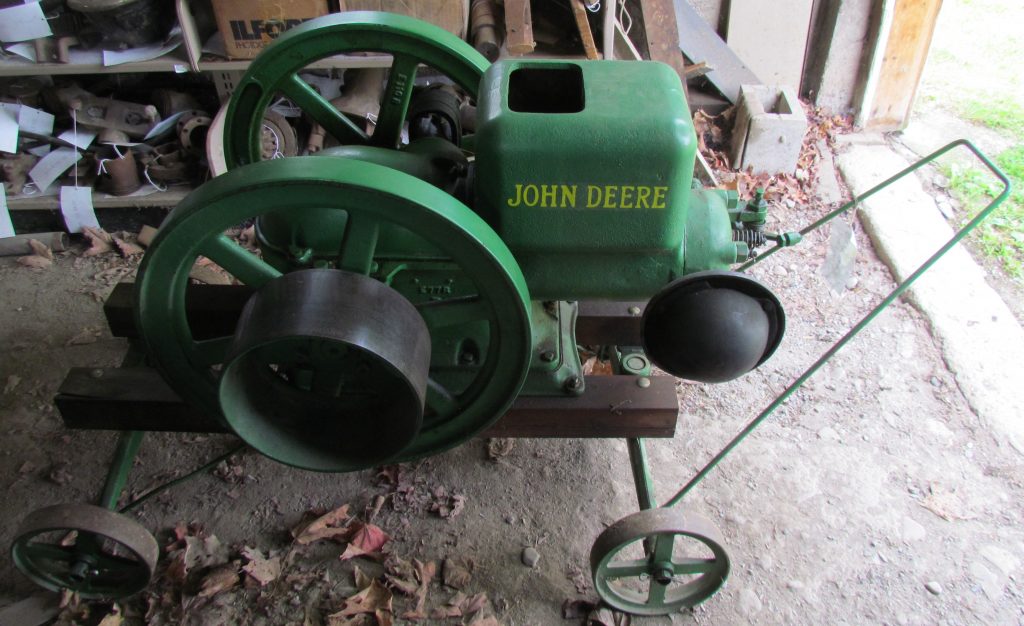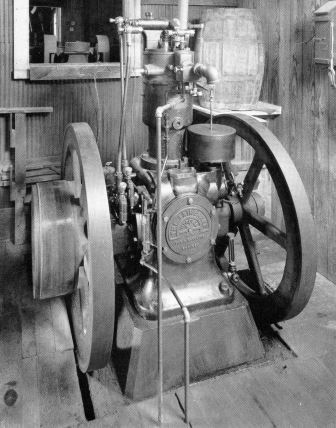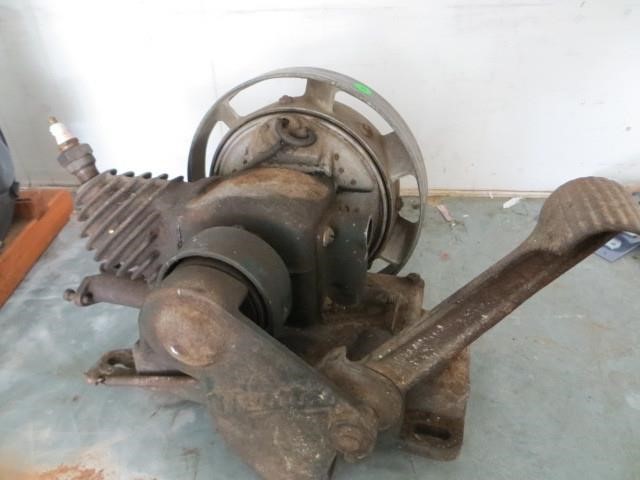“I have been working on expanding my antique engine collection and bringing a couple of recent acquisitions back into running condition. The one I just finished is a 1934 Maytag Multi-Motor which originally powered a wringer washing machine. I completely disassembled the engine, cleaned, painted, and reassembled it. After quite a bit of tinkering and adjusting, the little engine starts and pops along just like it did over 85 years ago.”

“These antique engines were made in an era when machines were built to last. It always amazes me how easily (relatively speaking) an engine that looks like a rusty hunk of metal, can be brought back to life. Broken parts often have to be fixed or fabricated by hand, but there are a surprising number of replacements that can be found online and on eBay. YouTube is very helpful to watch videos of other people restoring antique engines.”
“I have been visiting Hanford Mills since I was a young kid and the mechanical workings of the mill have always interested me. My grandfather was on the Board of Directors in the early years of the museum, so we went many times back then. I began collecting antique engines about three years ago and have exhibited at the Dan Rion Antique Engine Jamboree the last two years.”


The Hanfords installed this Fairbanks gasoline engine in the Mill in 1910 to power a dynamo that generated DC electricity for the Mill and nearby residents.



